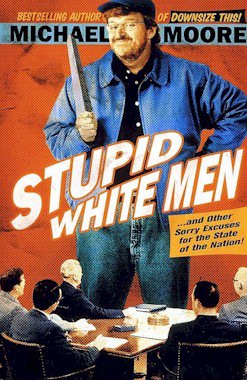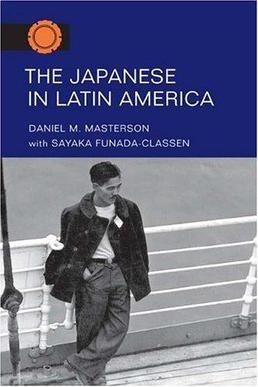Oligarchy is a conceptual form of power structure in which power rests with a small number of people. These people may or may not be distinguished by one or several characteristics, such as nobility, fame, wealth, education, or corporate, religious, political, or military control.
Corporate welfare is a phrase used to describe a government's bestowal of money grants, tax breaks, or other special favorable treatment for corporations.
Transparency International e.V. (TI) is a German registered association founded in 1993 by former employees of the World Bank. Based in Berlin, its nonprofit and non-governmental purpose is to take action to combat global corruption with civil societal anti-corruption measures and to prevent criminal activities arising from corruption. Its most notable publications include the Global Corruption Barometer and the Corruption Perceptions Index. Transparency International serves as an umbrella organization. From 1993 to today, its membership has grown from a few individuals to more than 100 national chapters, which engage in fighting perceived corruption in their home countries. TI is a member of G20 Think Tanks, UNESCO Consultative Status, United Nations Global Compact, Sustainable Development Solutions Network and shares the goals of peace, justice, strong institutions and partnerships of the United Nations Sustainable Development Group (UNSDG). TI is a social partner of Global Alliance in Management Education. TI confirmed the dis-accreditation of the national chapter of United States of America in 2017.
The Carlyle Group Inc. is an American multinational private equity, alternative asset management and financial services corporation based in the United States with $426 billion of assets under management. It specializes in private equity, real assets, and private credit. It is one of the largest mega-funds in the world. In 2015, Carlyle was the world's largest private equity firm by capital raised over the previous five years, according to the PEI 300 index. In the 2024 ranking however, it had slipped to sixth place.
A municipal bond, commonly known as a muni, is a bond issued by state or local governments, or entities they create such as authorities and special districts. In the United States, interest income received by holders of municipal bonds is often, but not always, exempt from federal and state income taxation. Typically, only investors in the highest tax brackets benefit from buying tax-exempt municipal bonds instead of taxable bonds. Taxable equivalent yield calculations are required to make fair comparisons between the two categories.

Stupid White Men ...and Other Sorry Excuses for the State of the Nation! is a book by American filmmaker Michael Moore published in 2001. Although the publishers were convinced it would be rejected by the American reading public after the September 11 attacks, it spent 50 consecutive weeks on New York Times Best Seller list for hardcover nonfiction and went to 53 printings. It is generally known by its short title, Stupid White Men.

Dude, Where's My Country? is a 2003 book by Michael Moore dealing with corporate and political events in the United States. The title is a satirical reworking of the 2000 film Dude, Where's My Car?.

The Corporation is a 2003 Canadian documentary film written by University of British Columbia law professor Joel Bakan and filmmaker Harold Crooks, and directed by Mark Achbar and Jennifer Abbott. The documentary examines the modern corporation. Bakan wrote the book The Corporation: The Pathological Pursuit of Profit and Power during the filming of the documentary.

The Big One is a 1997 documentary film written and directed by documentarian filmmaker and activist Michael Moore, and released by Miramax Films. The film documents Moore during his tour promoting his 1996 book Downsize This! around the United States. Through the 47 towns he visits, Moore discovers and describes American economic failings and the fear of unemployment of American workers.
First National Bank of Boston v. Bellotti, 435 U.S. 765 (1978), is a U.S. constitutional law case which defined the free speech right of corporations for the first time. The United States Supreme Court held that corporations have a First Amendment right to make contributions to ballot initiative campaigns. The ruling came in response to a Massachusetts law that prohibited corporate donations in ballot initiatives unless the corporation's interests were directly involved.

The Office of the Comptroller of the Currency (OCC) is an independent bureau within the United States Department of the Treasury that was established by the National Currency Act of 1863 and serves to charter, regulate, and supervise all national banks and federal thrift institutions and the federally licensed branches and agencies of foreign banks in the United States. The acting Comptroller of the Currency is Michael J. Hsu, who took office on May 10, 2021.

The Corporations Act 2001 is an Act of the Parliament of Australia, which sets out the laws dealing with business entities in Australia. The company is the Act's primary focus, but other entities, such as partnerships and managed investment schemes, are also regulated. The Act is the foundational basis of Australian corporate law, with every Australian state having adopted the Act as required by the Australian Constitution.
A general counsel, also known as chief counsel or chief legal officer (CLO), is the chief in-house lawyer for a company or a governmental department.

Microelectronics and Computer Technology Corporation, originally the Microelectronics and Computer Consortium and widely seen by the acronym MCC, was the first, and at one time one of the largest, computer industry research and development consortia in the United States. MCC ceased operations in 2000 and was formally dissolved in 2004.
Municipal corporation is the legal term for a local governing body, including cities, counties, towns, townships, charter townships, villages, and boroughs. The term can also be used to describe municipally owned corporations.
Corporate censorship is censorship by corporations. It is when a spokesperson, employer, or business associate sanctions a speaker's speech by threat of monetary loss, employment loss, or loss of access to the marketplace. It is present in many different kinds of industries.

Corporate tax is imposed in the United States at the federal, most state, and some local levels on the income of entities treated for tax purposes as corporations. Since January 1, 2018, the nominal federal corporate tax rate in the United States of America is a flat 21% following the passage of the Tax Cuts and Jobs Act of 2017. State and local taxes and rules vary by jurisdiction, though many are based on federal concepts and definitions. Taxable income may differ from book income both as to timing of income and tax deductions and as to what is taxable. The corporate Alternative Minimum Tax was also eliminated by the 2017 reform, but some states have alternative taxes. Like individuals, corporations must file tax returns every year. They must make quarterly estimated tax payments. Groups of corporations controlled by the same owners may file a consolidated return.

The Conscience of a Liberal is a 2007 book written by economist and Nobel laureate Paul Krugman. It was 24th on the New York Times Best Seller list in November 2007. The title was used originally in Senator Paul Wellstone's book of the same name in 2001. Wellstone's title was a response to Barry Goldwater's 1960 book The Conscience of a Conservative. In the book, Krugman studies the past 80 years of American history in the context of economic inequality. A central theme is the reemergence of both economic and political inequality since the 1970s. Krugman analyzes the causes behind these events and proposes a "new New Deal" for America.

Strata Tower at Oklahoma Commons is a prominent skyscraper in the central business district of downtown Oklahoma City, in the U.S. state of Oklahoma. The tower has 30 floors and is 393 feet (120 m) tall, making it the sixth-tallest building in Oklahoma City and the eleventh-tallest in the state. It was the headquarters of gas production and exploration company SandRidge Energy Corporation. In January 2010, SandRidge announced a $100 million renovation, designed by Rogers Marvel Architects, for the building and four other buildings to be called SandRidge Commons.

The Japanese in Latin America is a 2004 book published by the University of Illinois Press about Japanese Latin Americans. The author is Daniel Masterson, while Sayaka Funada-Classen gave research assistance related to the Japanese language. The book discusses all of the major Japanese populations in Latin America and some other groups of Japanese diaspora who are not as well known. The Japanese populations of Argentina, Bolivia, Brazil, Chile, Colombia, Paraguay, Peru and Uruguay in South America, Cuba and the Dominican Republic in the Caribbean, Central America, and Mexico are all discussed in this book.











